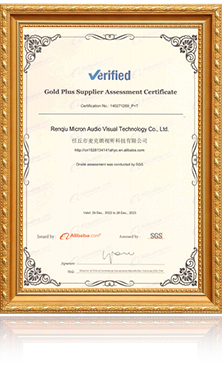Wholesale Electronics Manufacturing Leading Producers in the Television Industry
Wholesale Electronics Manufacturing Leading Producers in the Television Industry
Understanding Wholesale Base TV Factories A Comprehensive Overview
In the rapidly evolving world of consumer electronics, television sets hold a prominent place due to their integral role in home entertainment. Wholesale base TV factories play a crucial role in the supply chain of this industry, significantly impacting pricing, distribution, and technological advancement. These factories operate on a large scale, producing televisions at competitive prices, which subsequently affects retail pricing for consumers.
Understanding Wholesale Base TV Factories A Comprehensive Overview
One of the key advantages of wholesale manufacturing is the ability to reduce costs through economies of scale. By producing large volumes of televisions simultaneously, these factories can lower the cost per unit. This cost efficiency is passed on to retailers, who can offer competitive prices to end consumers. Furthermore, wholesale base TV factories often have established supply chains for essential components such as screens, circuit boards, and casings. Efficient logistics and procurement allow these factories to streamline operations and minimize production delays.
wholesale base tv factories

Additionally, wholesale factories play a significant role in technological advancements within the TV industry. As consumer demand shifts towards smart TVs with sophisticated features such as 4K resolution, OLED displays, and integrated streaming capabilities, wholesale manufacturers invest heavily in research and development. Collaboration with tech companies allows these factories to incorporate the latest technologies into their manufacturing processes, ensuring they remain competitive in a saturated market.
Moreover, the globalization of the television market has emphasized the importance of compliance with international standards and regulations. Wholesale base TV factories must adhere to various quality, safety, and environmental regulations. This ensures that the televisions produced are safe for consumers and meet the expectations of different markets. As awareness of environmental issues grows, many factories are also adopting sustainable practices to minimize their ecological footprint.
However, the wholesale TV manufacturing industry is not without its challenges. Fluctuations in raw material prices, trade tariffs, and shifting geopolitical dynamics can all influence production costs and timelines. Moreover, the rise of e-commerce has changed retail dynamics, pushing factories to reconsider their distribution strategies and partnerships.
In conclusion, wholesale base TV factories are a pivotal element in the consumer electronics landscape. They not only facilitate affordable pricing and technological innovation but also navigate the complexities of global manufacturing and distribution. As the industry continues to evolve, these factories will remain at the forefront, adapting to changes and driving the future success of television products worldwide.
-
Premium Tilt TV Mount Exporters: Global Export SolutionsNewsAug.03,2025
-
Premium Tilt TV Mount Exporters | Durable & AdjustableNewsAug.02,2025
-
Apartment TV Mount Installation: Expert Guide & TipsNewsAug.01,2025
-
Top Tilt TV Mount Exporters | Premium Export SolutionsNewsJul.31,2025
-
Premium Tilt TV Mount Exporters | GPT-4 Turbo EnhancedNewsJul.31,2025
-
Reliable Tilt TV Mount Company & Manufacturer, Factory Direct PriceNewsJul.30,2025
